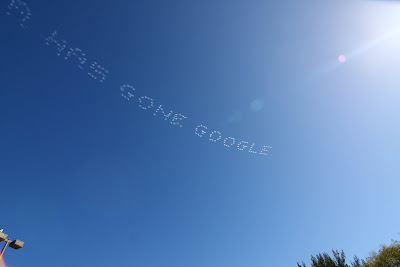Posted: 22 Oct 2010 04:59 PM PDT
One of our core philosophies has always been launch and iterate. We’ll bring you a useful new feature or product, and then use both data and your feedback to continuously make it better. This week, we’re excited to announce three enhancements to some of the Google tools that have been around a while. So the next time you’re searching for the latest news, traveling abroad or looking for daily updates on a topic of interest—we’ve got you covered. Here are this week’s updates:
Realtime counter in search results
Since Realtime Search launched in December of last year, we’ve steadily updated the feature making it more comprehensive and easier to use. This week we added a Realtime counter underneath the News section of your search results. Now, when people on your favorite social networks are commenting on a particular topic you’ve searched for, you can easily see how many updates have been shared, all in real-time. This makes it easy to see when a news story is popular on the social web. Click the link to see the full Realtime Search results page.

Local flavor of Autocomplete, now international
It’s been more than a year since we launched localized versions of Google Autocomplete (formerly Google Suggest) that offer relevant search predictions tailored for different regions (we’re at 155 domains and growing!) More recently, we took these tailored predictions to a new level in the U.S. by targeting to specific metro areas like San Francisco and Chicago. This week, we extended these hyper-local predictions around the globe to every country that has Autocomplete. This means that the list of predictions beneath the search box will seem more locally relevant than ever.
For example, when you’re in Barcelona, Spain and you start typing [rest] there’s a good chance you’re actually looking for restaurants in Barcelona:


Better support for news-lovers in Google Alerts
It might be hard to believe, but Google Alerts have been providing email updates on your topic or query of interest since all the way back in 2003. Over the course of the past few years, we've spent a lot of time improving the way Google Alerts works to handle very specific queries (like a business or hobby), and while we've still got a lot of work to do, we've made steady improvements in the quantity, freshness and relevance of the content that we send you.
However, we’ve found many people are specifying general topics like “finance,” “entertainment” or even simply “news.” Up until this week, Google Alerts would return a long list of content from across the web about these very broad topics. This worked, but we realized it’s probably much more helpful to send you the corresponding section from Google News, since it seems like you’re looking for a digest of the big topics of the day. So we’re now including News sections in Alerts if you enter one of the following terms like: news, world news, business, entertainment, finance, health, science, sports or technology. This allows you to have your favorite part of Google News delivered to your inbox every morning.
The week in searches
In addition to all of these enhancements, are you curious to know what Google searches shot off the charts this week? The Google Beat gives you an inside look into the pulse of U.S. searches. In this week’s edition, we cover everything from BCS Football to Snooki.
We hope you find these updates useful!


